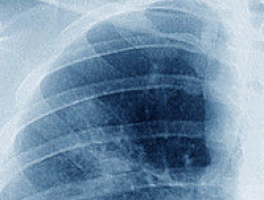
Recent studies have demonstrated that molecular-targeted agents, such as epidermal growth factor receptor (EGFR) tyrosine kinase inhibitors (TKI), may prolong survival of selected patients based on tumour biomarkers.
The presence of mutation in the EGFR gene is known as a predictive marker for the response to treatment.
However, whether or not these EGFR mutations are prognostic factors for non-small cell lung cancer (NSCLC) has not been known.
A recent study published in the International Association for the Study of Lung Cancer's (IASLC) Journal of Thoracic Oncology, concludes EGFR mutations are not a prognostic factor in surgically resected patients or patients with recurrence treated with conventional therapies.
However, after disease recurrence, administration of EGFR tyrosine kinase inhibitors can prolong survival.
A prognostic marker is a patient characteristic or tumour factor that predicts the patient outcome, independent of the treatment. In the study, researchers retrospectively collected a series of samples from patients who underwent surgery whose EGFR mutations status had been tested, then analysed patient survival.
The patients were seen between June 1998 and February 2010 at the Seoul National University Hospital. And after excluding some patients, researchers analysed data from 863 patients.
They concluded that although the EGFR mutation is a predic¬tive marker for EGFR TKI response, the presence of EGFR mutation is not a prognostic factor in NSCLC.
The researchers believe, "the clinical observation that patients with EGFR mutation seem to survive longer may be because EGFR mutation is more frequently associated with other significant prognostic factors, such as age, stage, or smoking status. On the basis of our results, the pathologic stage seems to affect the prognosis by influenc¬ing the cancer recurrence, and smoking status seems to be the most important prognostic factor for overall survival."
Source: International Association for the Study of Lung Cancer